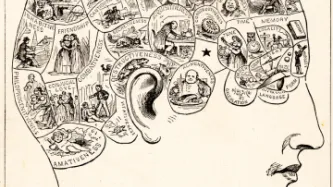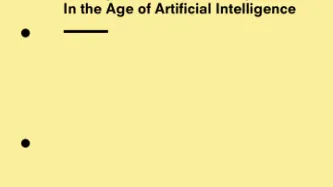Search
Content type: News & Analysis
… The move to AI assistants and agents risks a sea change in privacy and security. We analyse OpenAI's early claims that … that you have logged it into via takeover mode.” The firm states that it has taken steps against prompt injection (and … machine on OpenAI’s servers. But ultimately the firm states that the tradeoffs are left to the user, when …
Content type: Long Read
… features. Can we trust their developers to protect our privacy and security? Key findings AI Assistants will pose … having photographic memory”. There were specific design statements in the launch: “Recall leverages your personal … to other servers, and compelled access. As Microsoft stated in their June announcement it was working to ‘ensure …
Content type: Advocacy
… following the initial launch of our campaign “The End of Privacy in Public”, and discuss the current state of regulation of FRT in the UK. In doing so, we … November 2023 and June 2024, and discuss the current state of regulation of FRT in the UK. In doing so, we …
Content type: Long Read
… and extra-territoriality Just like with other human rights, states are bound to respect individuals’ right to privacy even when acting outside their frontiers. The UN … and media workers, including […] surveillance, and urges States to cease and/or refrain from such attacks or …
Content type: Advocacy
… Privacy International submitted its input to the UN Special … However, there is a growing evidence that commercial and state use has a detrimental impact on human rights, and … and in particular racial discrimination. Recommend states to adopt or review existing discrimination law, …
Content type: Advocacy
… provide protection for people on the move. Key points The statement of the #ProtectNotSurveil coalition warns that: … authorities. As a result of pressure exerted by Member States, law enforcement and security industry lobbies, these … European Network Against Racism (ENAR), Homo Digitalis, Privacy International, Statewatch, Dr Derya Ozkul, Dr. Jan …
Content type: Advocacy
… has upon the rights of persons with disabilities; Urge states to ensure that the deployment of digital technologies … of persons with disabilities, including their right to privacy and to regulate for the safe deployment of digital … decision-making poses to persons with disabilities and urge states to refrain from relying on automated decision-making …
Content type: News & Analysis
… organisations, submitted complaints before 5 European data privacy regulators against Clearview AI, Inc. ("Clearview"), … clients triggered a plethora of investigations by data privacy regulators across the globe, with most of them … series of challenges brought against it, the company has stated that it only collects "publicly available …
Content type: News & Analysis
… The World Health Organisation tasked Privacy International with reviewing their guidance on … their guidance within a human rights framework. It also states that “for AI to have a beneficial impact on public … and deployment of AI technologies for health,” a statement that reflects the demands made by civil society …
Content type: Examples
… Examples Date 21st April 2020 Location United States of America Many of the steps suggested in a draft … for new technologies such as self-driving cars and altering privacy laws so that what the US government has been doing …
Content type: Long Read
… to protect migrants and their data. This is why in 2019 Privacy International, and several migrant and digital … with its use of PredPol , a program developed in the United States, which directs officers where to patrol based on … country nationals crossing the land borders of EU Member States”. In addition to other features, the system …
Content type: News & Analysis
… Privacy International (PI) and Liberty have filed on Friday, … pre-existing case ( Privacy International v Secretary of State for Foreign and Commonwealth Affairs and others ), … bulk interception warrants on the basis of misleading statements made to the relevant authorities. In this new …
Content type: Advocacy
… part of this process, CERD invited stakeholders, including States, UN and regional human rights mechanisms, UN … institutions, and academics to send their comments. Privacy International sent its comments to the Committee as … 36 and also to inform the Committee’s future contributions. Privacy International recommends the Committee on …
Content type: News & Analysis
Profiling and Automated Decision Making: Is Artificial Intelligence Violating Your Right to Privacy?
… and negative ways. And particularly so when it comes to privacy . As the UN High Commissioner for Human Rights noted … analytics and artificial intelligence increasingly enable States and business enterprises to obtain fine-grained … is based on some fundamental principles. One of these states that any intrusion into our privacy and interaction …
Content type: News & Analysis
… industries have become the new battlefield as the United States and China clash over tariffs and trade deficits. It’s … user base, a perception that Chinese people care less about privacy, and the view that privacy protections are weak in … since May, has set a prominent example. The United States, meanwhile, continues to fall behind. U.S. privacy …
Content type: Report
… there is a real risk that the use of new tools by states or corporations will have a negative impact on human … While AI impacts a plethora of rights, ARTICLE 19 and Privacy International are particularly concerned about the impact it will have on the right to privacy and the right to freedom of expression and …
Content type: Press release
… April 2018 Full report is available here ARTICLE 19 and Privacy International’s report provides an overview of the … how AI tools impact human rights. Specifically, we call on states and companies to: Ensure protection of international … accountability and transparency: corporate, technical, and state actors must allow for meaningful …














